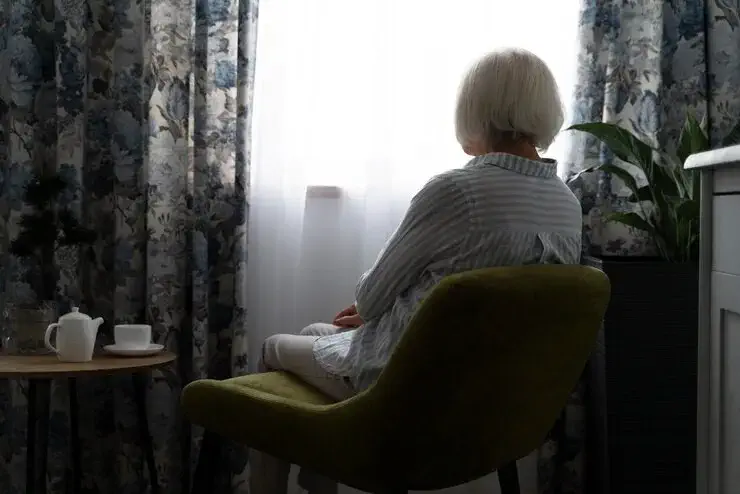
Coping with Feeling of Loneliness in Elderly
Loneliness in elderly refers to a situation in which elderly people feel isolated and lonely due to various factors. This situation can have a great negative impact on their physical and mental health. Some scientific studies have observed that people who are exposed to loneliness are more likely than others to suffer from serious diseases, including Alzheimer’s and dementia.
A large percentage of the elderly feel lonely and suffer from depression due to negative circumstances in their lives, such as losing a lifelong spouse, being away from their children, fear of death, fear of illness and not having someone to take care of them, losing beauty and youth, losing physical strength and staying at home. There are several solutions, such as participating in social activities and receiving more support and attention from family and friends, which play an important role in reducing loneliness in older people.
Lonely elderly people need someone to be their companion and accompany them in various activities more than anyone else. In this article from the Human Health Mag website, we would like to provide you with useful information about the negative impact of loneliness in ageing populations, the causes of loneliness and social isolation of seniors, strategies for social communication, and the role of those around you in reducing feelings of loneliness in the elderly.
Lonely Seniors
The elderly have conditions that ultimately cause them to be lonely. These loved ones raise their children with a thousand efforts and eventually they form families and leave their parents alone. Gradually, as cities grow and economic conditions become more difficult, people’s time and energy also decrease and they are less able to visit their elderly loved ones. These conditions, in addition to the loss of a spouse, various diseases and physical disabilities in the elderly, cause them to feel lonely. Therefore, we see an increase in the number of lonely seniors day by day. This creates depression in the elderly and the society at large.
Sometimes the feeling of loneliness in the elderly becomes so great that they suffer from difficult mental conditions and are no longer able to manage their lives. These elderly people usually suffer from depression caused by loneliness and they have no enthusiasm or desire to continue living. They cannot create entertainment for themselves, and this gradually makes them more withered. Perhaps their life expectancy also becomes shorter. In fact, they themselves go to welcome death.
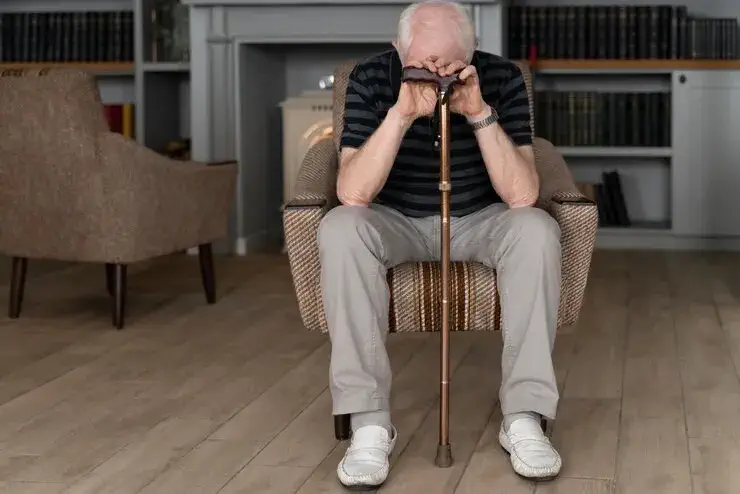
Main Causes of Loneliness in the Elderly
Loneliness in the elderly can occur for a variety of reasons, including social reasons, psychological reasons, and the following physical reasons:
- Loss of a spouse or close friends
- Retirement from work, reduced social interactions, and a sense of purposelessness (as they age, older adults may play a smaller role in their previous jobs and economic plans and families, which in turn contributes to feelings of worthlessness and loneliness)
- Physical and health problems that can limit the ability of older adults to participate in social activities and cause social isolation
- Distance from children, less contact with family members
- Moving to a nursing home or changing residence
- Lack of strong and meaningful social relationships
- Widening the generational and cultural gap between older adults and younger generations
- Financial problems and limited participation in social and recreational activities
- Physical limitations, the tendency of most older adults to stay at home and sleep more
How Does Loneliness Affect Elderly People?
Loneliness can have many negative effects on the physical and mental health of the elderly. These effects, if not controlled, will cause serious diseases in the elderly and even their premature death. These complications show that loneliness has serious effects on the health and quality of life of the elderly.
Impacts of Loneliness on Physical Health in Older Adults
What are the physical consequences of loneliness in elderly?
- High blood pressure and increased risk of heart disease and stroke
- Weakened immune system and exposing the elderly to various diseases
- Increased risk of premature death
- Obesity and metabolic problems such as type 2 diabetes
- Increased risk of dementia and cognitive function degradation
Impacts of Loneliness on Mental Health in Elderly
How does loneliness affect elderly mental health? Loneliness can lead to increased feelings of depression and anxiety in the elderly. Elderly people who feel lonely may experience anxiety more. This anxiety can be due to concerns about the future, health, and personal safety. Feelings of isolation and lack of connection with others can also lead to a decrease in morale and an increase in feelings of hopelessness. Loneliness can increase the level of stress in the elderly. Chronic stress also has negative effects on mental and physical health and can lead to more problems.
Effects of Loneliness on Quality of Life in Elderly Adults
Feelings of loneliness are often associated with decreased life satisfaction and feelings of hopelessness. Decreased life satisfaction also leads to a decrease in quality of life. Loneliness can lead to negative changes in people’s lives and a sense of meaninglessness. Older adults who feel lonely may enjoy their lives less and feel hopelessness.
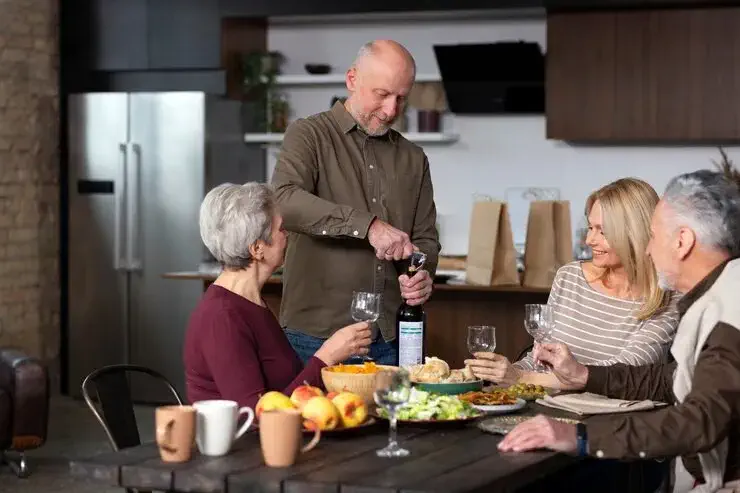
How Can Loneliness in the Elderly be Prevented?
How to help an elderly person with loneliness? Eliminate loneliness in the elderly is not difficult, it just requires a little time and dedication. Fear of loneliness in old age and the elderly is one of the most common problems in old age and senility, which is more common among women than men. In this situation, the elderly person is extremely afraid of being alone, and thinking about it also causes stress and anxiety in the person.
In this case, the families of these elderly person should strictly avoid leaving them alone because anxiety can cause heart attacks and even death of the elderly person. There are many practical and effective solutions to reduce social isolation and loneliness among older people, and you will learn about these elderly loneliness solutions in the following:
Don’t leave the elderly alone
Do you know how long can elderly live without food and water? If you have an elderly parent who lives alone, be sure to include a visit to them in your weekly schedule. Try to visit them several times a week and provide them with anything they need. In addition, talk to him/her once a day and find out how he/she is doing. You can also create entertainment for him/her.
- Buy them a smartphone and make them members of happy channels and groups
- Make happy and entertaining TV channels available to them
- Buy a pet such as a cat or a parrot for your loved one
- Plant flowers and plants in the garden or buy small and large flower pots for them to take care of the flowers, etc.
Talking to the Elderly
It is not always possible to know when is the best time to have a good conversation with an elderly person, but what is clear is that a good start will attract the elderly person to talk to you. Be sure to set aside hours during the day to talk to the elderly person and start useful conversations with them in between household chores and taking care of the elderly person’s affairs.
If you think an elderly person may have difficulty hearing or has a memory impairment, be sure to speak to them clearly but never shout. Pause between sentences and questions so that they have a chance to digest the information and give them a little more time to respond. The key to talking to the elderly person is to never rush and be completely patient.
Family relationships
Having a family that is in regular contact with the elderly can give them a sense of security and emotional support. Also, doing joint activities with family members maintains a sense of belonging among the elderly and prevents their isolation. Strong family relationships and a sense of love and attention from the family, in addition to improving the lifestyle of elderly, can lead to increased life satisfaction and reduced stress. Access to needed health care and better physical and mental health are some of the other benefits of family support for the elderly. Families can encourage the elderly to participate in social and group activities. This in itself can help reduce loneliness and increase social interactions.
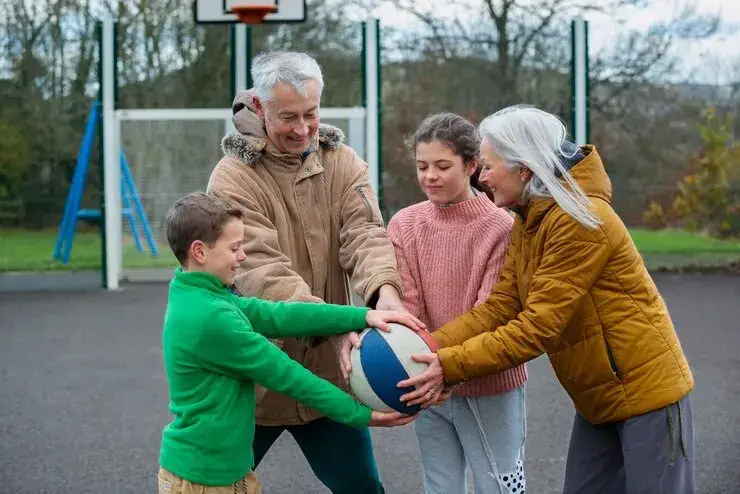
If you are not constantly with the elderly person, sometimes making a simple phone call, regularly visiting the elderly person at home, helping with shopping and driving, and arranging for them to attend family parties and gatherings can be very effective and beneficial in alleviating the elderly person’s feelings of loneliness.
Encourage the elderly to socialize with their friends
Having friends and spending time with them is one of the best ways to boost morale, not only for the elderly but for all ages. Elderly people generally have a similar way of thinking and have a better understanding of each other. In this case, the elderly feel that they are not alone and that there are people who are in similar situations to them. This makes them feel better and reduces the pain of being away from their children, and they expect less from their children.
Group activities
Participating in group activities can be significantly helpful in reducing loneliness in seniors. For example, taking music, painting, or craft classes can help them learn new skills and meet new people. Exercise activities such as yoga, group walks, or sports can help improve seniors’ physical and mental health and provide them with more social opportunities. Participating in support groups also helps seniors share their experiences and feelings with others and receive emotional support.
Participation in housework
Aging can cause the elderly to feel lonely and even unable to solve a simple problem at home. Seniors often complain about doing these chores at home, such as taking out the trash, replacing a burned-out light bulb, closing windows and doors, clearing snow from the path, shopping, and taking care of pets… which can be easily done by individuals.
Cooking
Sometimes it is necessary to put some prepared meals in the seniors’ refrigerator so that they can heat them up when necessary. Of course, using fresh foods and vegetables in seniors’ meals is very important. Sometimes, if they are able and interested, they can help you cook their favorite food in the kitchen.
Use of technology
Social media & digital devices such as tablets and smartphones can help seniors easily access information, entertainment, and online services. Video calls through available platforms can help seniors stay connected with family and friends and feel less lonely. There are also robots and artificial intelligence systems that help seniors with everyday tasks and even act as virtual companions. Participating in online classes and courses can also greatly help seniors learn new skills and meet new people.
The Role of Family and Society in Reducing Loneliness in Elderly
Establishing regular contact between families and the elderly and participating in joint activities can play a very important role in reducing feelings of loneliness in the elderly. In addition to family, friends are also important sources of emotional support. Having friends with whom one can talk and share feelings helps reduce feelings of loneliness.
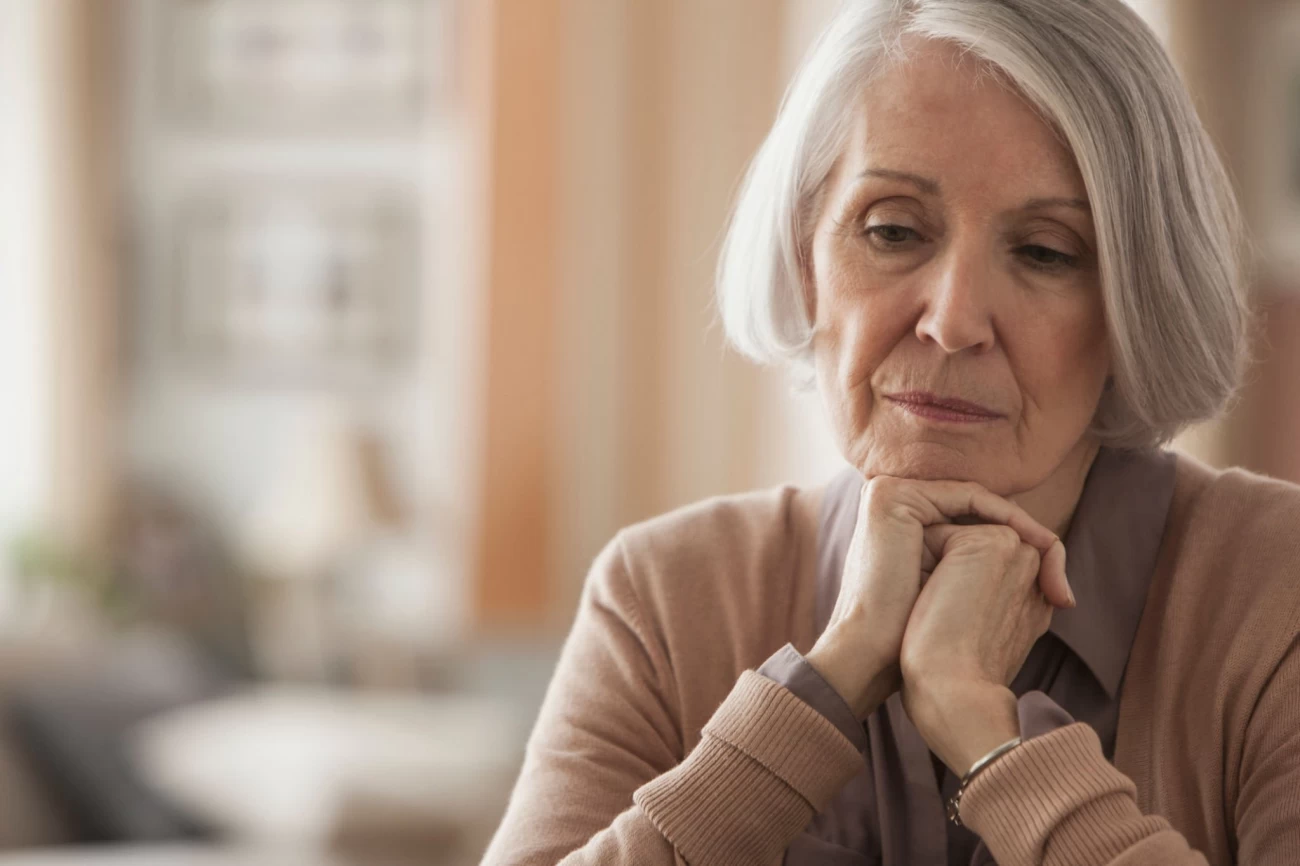
Friends can encourage the elderly to participate in social and group activities. These social interactions lead to a reduction in isolation and an increase in the sense of being important. They can also participate in physical activities such as walking, light exercise, and other physical activities with the elderly, which in turn leads to improved physical and mental health.
The Role of Senior Centers and Senior Caregivers
Senior centers usually provide spaces for social interactions and group activities, which can help seniors connect with others and avoid loneliness. These centers organize a variety of programs, such as educational classes, art workshops, and recreational activities, that keep seniors active and make them feel useful.
These centers also usually offer counseling and psychological support services, which help seniors better cope with their emotions and receive emotional support. In such centers, access to health and medical services is usually available, which can help improve the physical and mental health of the elderly. These centers encourage seniors to participate in social and group activities, which in turn leads to reduced loneliness and increased social interactions.
Concluding Remarks
Respecting the elderly is very important. Even if we disagree with their opinions or behaviors, we should treat them with courtesy and respect. The valuable experiences and knowledge they have should be taken into consideration and respected. Also, listening to them and dedicating enough time to hear their problems and concerns can convey a feeling of being understood and valued to them.
Many older people struggle with feelings of loneliness, isolation and loss, which can be very difficult. Regular communication and joint activities help them to feel less lonely and maintain a sense of belonging in the community. Lonely seniors need a friend and companion more than anything else to be by their side and to distract them from their loneliness and thoughts. You can understand the importance of this by comparing the conditions of seniors who are alone and seniors whose children visit them daily. In any case, the presence of someone who is like a friend by the side of the senior and takes care of him is very important.
The best way to reduce feelings of loneliness in the elderly is to hire an elderly nurse, so that in addition to nursing and taking care of the elderly, she can be his companion and accompany him/her in many activities such as walking, cooking, reading books, etc.
We’ve shared our thoughts and now it’s YOUR turn! Please share your insights in the comments, and let’s start a meaningful discussion that will help others, too!

Frequently Asked Questions
What causes loneliness among the elderly?
Elderly people can become socially isolated for a variety of reasons, such as aging or frailty, and the death of a spouse or friends is also an important cause of loneliness in the elderly.
What are the consequences of being too lonely for the elderly?
Social isolation has detrimental effects on the health and well-being of the elderly, including its adverse consequences such as heart disease, stroke, and high blood pressure, and ultimately premature death.
Why is loneliness common in elderly people?
Over time, many elderly people lose friends and peers and may feel lonely due to the death of a spouse or other family member. In addition, physical problems and illnesses can cause limitations in mobility and social activities, which in turn leads to reduced social connections and increased feelings of loneliness.
How can you help reduce loneliness in elderly?
Reducing loneliness in the elderly requires attention and targeted measures. Regular contact with older adults through phone calls, face-to-face visits, and the use of communication technologies can help reduce feelings of loneliness. Encouraging them to participate in social and group activities, such as classes, sports groups, or local clubs, can also increase their social interactions. Supporting older adults to maintain their independence and carry out daily activities also gives them a sense of worth and belonging.
What are the signs of loneliness in the elderly?
Older adults who feel lonely may be more likely to experience anxiety. Feelings of isolation and lack of connection with others can also lead to a decrease in morale and increased feelings of hopelessness. Loneliness can increase stress levels in older adults. These older adults often suffer from depression caused by loneliness and have no enthusiasm or desire to continue living.
